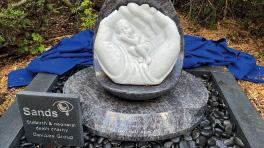
4 minute read
An introduction to Genealogists
Jo Lander explains the intricacies of a genealogist's work.
Introduction
Advertisement
Probate Genealogists, also known as Probate Researchers or even Tracing Agents, work with local authorities and other public bodies, finding the missing next of kin of those who die within their district boundaries.
Government good practice (https://www.gov.uk/government/publications/public-health-funerals-good-practiceguidance/public-health-funerals-good-practice-guidance#section2) on the use of genealogists by local authorities was updated last year. It confirms that there is no legal requirement for local authorities to identify next of kin but, where they do choose to use a genealogist, it stresses the importance of carrying out due diligence “to help ensure satisfaction with the provider”.
There is some further information on this aspect a little later on in the article.
Often with little information to begin with, tracing in this sector can often be far from straight forward, with some cases involving crossing national and even continental borders. Even on cases where information seems initially plentiful, this can often turn out to be anecdotal and not entirely accurate.
Genealogists are therefore trained to simply follow the research, wherever in the world it takes them; whether that’s the other side of the globe or just up the road.
Tracing Next of Kin
The specialist work of Probate Genealogists can save officers a considerable amount of time, plus help expedite a case. Finding a relative also of course gives them the opportunity to plan a more personal funeral, plus enables the administering of the estate.
You might think that in this ever-connected world that we live in, finding next of kin would be relatively straight forward, yet this is often not the case. People forget to update their contact details when they move residence or drop off electoral rolls and other official databases. In more extreme cases, people simply don’t want to be found.
In addition, there can often be historic disputes too which can further hamper locating relatives. On rare occasions, some people do not want to hear about estranged relatives, even about their demise. This is a fact of life in a world which deals with death.
In cases where there is no valid will in place, a Probate Genealogist’s work can become particularly important, as it can often be unclear as to whom is entitled to inherit assets. In fact, according to analysis from established genealogy firm Anglia Research, this is a particularly prevalent issue due to the COVID-19 pandemic, showing that up to two in three deaths last year in the UK was intestate.
The research work undertaken checking family trees and verifying entitled beneficiaries can save local authorities valuable time and resource, and ensures that they have made reasonable efforts in finding relatives.
Most genealogy firms will provide their services free of charge to the public sector, with any fees earned through reaching agreements with any next of kin located.
Genealogists Expertise
The expertise of a genealogist lies in locating and correctly applying historical records to identify individuals. This is not something that can be done from a quick Google search.
A select number of Probate Genealogy firms have been around since 1970’s and before, and that type of experience
and exposure simply can’t be replicated. To become proficient in tracing people takes years of practice; building up knowledge and learning best practice methods from more experienced colleagues.
The importance and relevance of Probate Genealogists is ever increasing, but it surprises many to learn that it is an unregulated industry with no particular entry requirements. Therefore, reputation and professionalism are key, and whilst many firms have suitably qualified staff undertaking the work, not all do. Therefore, care should be taken in selecting a suitable genealogist to instruct.
What should I Look For?
Genealogists should be diligent and discerning, with the ability to act discreetly when working with a local authority. Any public bad reputation risks tarnishing the local authority by association.
Any self-respecting Probate Genealogy firm will have a clear and professional looking website which will detail their services. Look for case studies and testimonials on the website. Externally, you could also view online review platforms such as Google My Business or Trust Pilot. Firms need to be able to walk the walk, as well as talk the talk.
Some will even have dedicated Public Sector web pages, detailing exactly what services they offer, and this will likely be a really good source of information. Any that mention fairness campaigns in the public sector should be on your shortlist.
On a more general business level, being fully compliant with the EU General Data Protection Regulation is nonnegotiable, but is the firm also ISO900 registered or even a signed-up member of the Good Business Charter?
And whilst Professional Indemnity insurance isn’t a legal requirement, a firm that doesn’t have this cover should in all honesty be avoided.
Accreditation
Accreditation is another big consideration – is the genealogist a member of a professional body? Do they have legally qualified staff with qualifications achieved via the Professional Paralegal Register or CILEX? These are important points to ponder and can point to both the size and perhaps professionalism of a firm.
On a more specific level, is the genealogist a current Institute of Cemetery and Crematorium Management member and will therefore have participated in training sessions run by the ICCM? Look out for those with a customer or client charter too.
So, next time you are faced with a not-so-straight forward case, don’t be afraid to instruct a reputable Probate Genealogist to carry out the heavy lifting for you. Just make sure that you have undertaken your own due diligence first.









